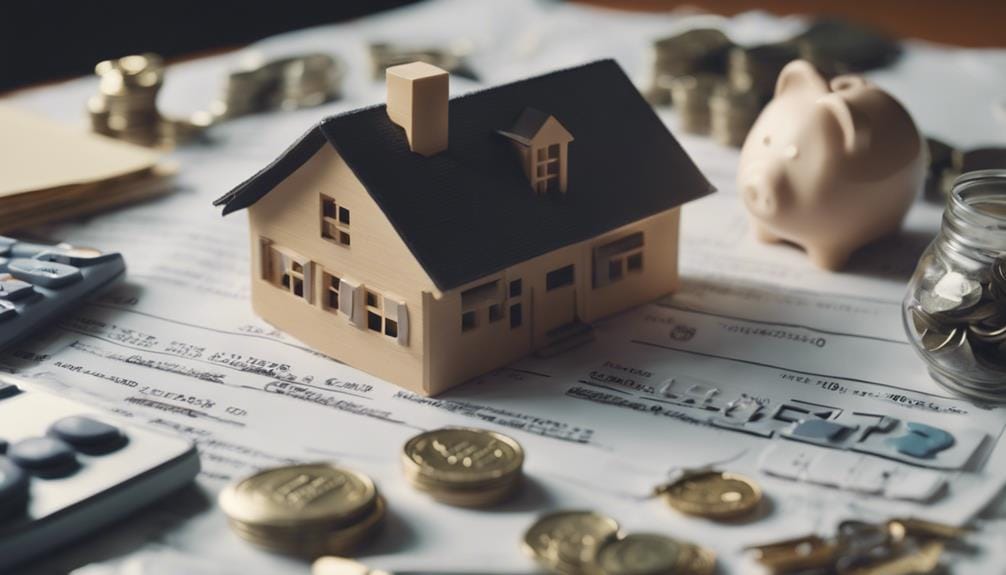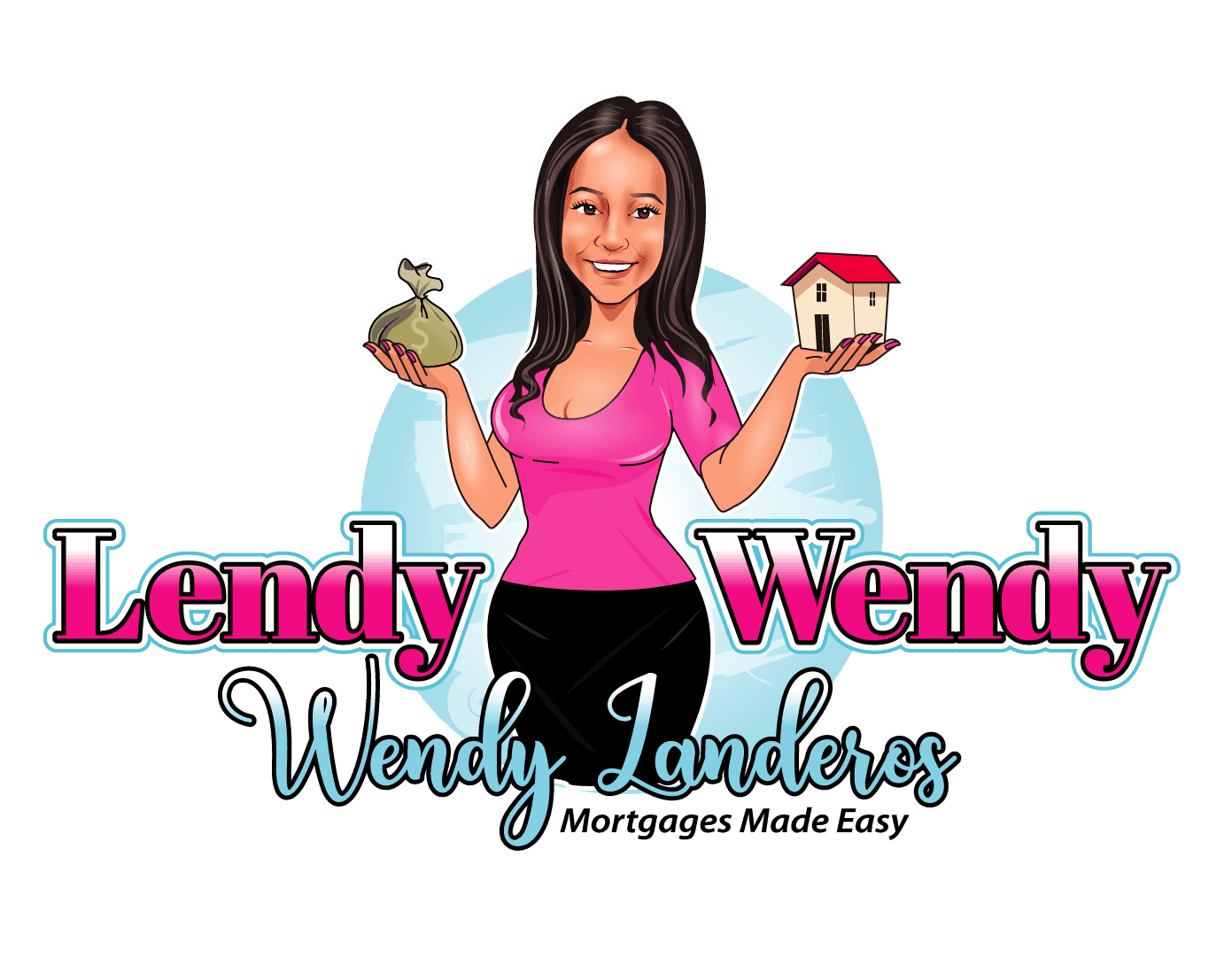When buying a home, focus on down payment and closing cost strategies. Aim for higher down payments for lower rates. Explore saving options aligned with your budget. Check out assistance programs available. Learn about closing cost breakdowns and keep an emergency fund. Consider tax benefits of homeownership and strategic timing for purchase. Evaluate different mortgage options based on your financial situation. For more tips on securing the best financing terms and reaching your homeownership goals, keep in mind you can always find details on down payment assistance programs, understanding closing costs, and more.
Key Takeaways
- Understand importance of down payment for favorable financing terms.
- Explore down payment savings strategies aligned with budget.
- Research available down payment assistance programs for eligibility.
- Budget for closing costs and maintain emergency fund.
- Keep detailed records for tax benefits related to home purchase.
Importance of Down Payment

When considering buying a home, understanding the significance of a down payment is vital for securing favorable financing terms. The down payment benefits are numerous, including lower monthly mortgage payments, reduced interest rates, and potential access to a wider range of loan options.
To meet down payment requirements, exploring various down payment savings strategies is essential. Setting aside a portion of your income each month dedicated to savings can help you reach your goal more efficiently. Additionally, cutting back on non-essential expenses and considering alternative sources of income can boost your savings potential.
Moreover, increasing your down payment amount can lead to better loan terms and lower overall costs throughout the life of the loan. By strategically planning and saving for a substantial down payment, you demonstrate financial responsibility to lenders, which can positively impact your mortgage approval chances.
Setting Realistic Savings Goals

To guarantee that your home buying plans align with your financial capabilities, it's vital to establish realistic savings goals that cater to your budget and aspirations. When setting savings goals for your down payment and closing costs, consider implementing effective savings strategies. Start by creating savings milestones to track your progress and stay motivated. Financial planning plays a key role in achieving these goals. Take the time to assess your current financial situation, set a budget that allows for regular savings contributions, and make necessary sacrifices to reach your target amount.
To ensure success, it's imperative to be disciplined and consistent in your savings approach. Look for areas where you can cut back on expenses and redirect those funds towards your home buying fund. Remember, every small contribution adds up over time. By setting realistic savings goals, developing a solid financial plan, and being willing to make sacrifices along the way, you can inch closer to owning your dream home.
Exploring Down Payment Assistance Programs

Consider exploring available down payment assistance programs to support your home buying journey. These programs can help make homeownership more accessible by providing financial aid towards your down payment. To determine your eligibility for these programs, you'll need to meet certain criteria set by the program, such as income limits and credit score requirements. The application process usually involves submitting documentation to prove your eligibility and need for assistance.
When looking into down payment assistance programs, it's crucial to research their availability in your area. Not all programs are offered nationwide, and their funding sources can vary. Some programs receive funding from government grants, while others may be sponsored by non-profit organizations or even private companies. By understanding the program availability and funding sources, you can better assess which options align with your needs and financial situation. Take the time to explore these programs to potentially lessen the financial burden of purchasing a home.
Understanding Closing Costs

Explore how understanding closing costs plays a significant role in your home buying process. When it comes to closing costs, having a clear understanding of the breakdown is essential. These costs typically include fees for appraisal, title insurance, attorney fees, and more. By knowing the closing cost breakdown, you can avoid any surprises and budget effectively.
Additionally, reviewing the loan estimate details provided by your lender is important. This document outlines the estimated closing costs you can anticipate, helping you prepare financially. Understanding each item listed in the loan estimate can empower you to negotiate certain fees and make sure you aren't overcharged.
Closing costs are an important aspect of buying a home, and being well-informed about them can save you time and money. Take the time to review the closing cost breakdown and loan estimate details carefully. This knowledge won't only help you navigate the closing process more smoothly but also assist you in budgeting effectively for your new home.
Budgeting for Closing Costs

Understanding how to budget for closing costs is crucial in preparing for the financial aspects of purchasing a home. To effectively budget for closing costs, consider the following tips:
- Estimate Costs: Research and estimate the typical closing costs in your area to have a baseline for budgeting.
- Guarantee Fund: Make sure you have an emergency fund set aside to cover any unexpected or additional closing costs that may arise.
- Savings Account: Open a dedicated savings account specifically for your home buying expenses, including closing costs.
- Track Expenses: Keep a detailed record of your expenses related to the home purchase process to stay on top of your budget and make adjustments as needed.
Negotiating With Lenders and Sellers

When negotiating with lenders and sellers, be prepared to discuss terms that align with your financial goals and needs. In lender negotiations, consider presenting a strong case that highlights your creditworthiness and ability to make timely payments. This can help in securing favorable loan terms and potentially lower interest rates. Don't hesitate to inquire about down payment strategies that could work in your favor, such as a lower down payment percentage or assistance programs.
When engaging with sellers, explore the possibility of seller concessions that could reduce your closing costs or help with the down payment. Discuss offer terms that are reasonable yet advantageous for you as the buyer. Be open to negotiating on aspects like the purchase price, closing date, or including certain appliances or furniture in the deal. Remember, effective communication and a willingness to compromise can lead to mutually beneficial agreements that suit both parties involved.
Using Gift Funds for Down Payment

Considering utilizing gift funds for your down payment can be a smart strategy to bolster your home buying finances. Here are some key points to keep in mind when using gift funds for your down payment:
- Gift restrictions, guidelines: Lenders often have specific guidelines regarding the use of gift funds. Make sure you understand these restrictions before proceeding.
- Family contributions, limitations: While family members can contribute gift funds, there may be limitations on who can provide these funds and how they should be documented.
- Gift letter: Lenders typically require a gift letter signed by the donor to confirm that the funds are a gift and not a loan that needs to be repaid.
- Paper trail: It's crucial to maintain a clear paper trail for the gift funds, including documenting the transfer of funds and ensuring they're deposited into your account according to lender guidelines.
Tax Implications of Down Payment

To ensure you understand the potential tax implications of your down payment, consult with a tax advisor or accountant experienced in real estate transactions. Understanding the tax implications of your down payment is vital as it can have significant financial benefits.
Typically, down payments aren't tax-deductible expenses. However, the interest you pay on your mortgage might be tax-deductible, providing a potential tax benefit. Additionally, if you're purchasing a property as an investment, there may be depreciation deductions that can offset some of your taxable rental income.
Furthermore, if you're a first-time homebuyer, there might be specific tax credits or deductions available to you that could reduce your overall tax liability. It's essential to keep detailed records of your down payment and mortgage payments to take advantage of any potential tax benefits.
Timing Your Home Purchase

Understanding the tax implications of your down payment sets the stage for making strategic decisions when it comes to timing your home purchase. When considering the timing of your home purchase, several key factors should be taken into account:
- Market Conditions: Keep an eye on current market conditions to gauge whether it's a buyer's or seller's market. In a buyer's market, you may have more negotiating power due to lower demand, while a seller's market could mean higher prices and more competition.
- Home Prices: Monitor trends in home prices in the areas you're interested in. Buying when prices are lower could result in savings or better value for your money.
- Interest Rates: Stay informed about interest rate movements. Low-interest rates can make borrowing more affordable, while high rates could increase your monthly payments.
- Economic Factors: Consider economic indicators such as job growth and inflation rates. A strong economy may lead to higher home prices, while a downturn could present opportunities for buyers.
Evaluating Mortgage Options

Explore various mortgage options to find the best fit for your financial situation and homeownership goals. When evaluating mortgage options, compare interest rates and mortgage terms to make sure you choose the most cost-effective loan. Different lenders offer varying rates and terms, so take the time to research and compare before making a decision.
Additionally, consider the impact of your credit score on loan approval. A higher credit score often leads to better loan terms and higher chances of approval. If your credit score is lower, you may still qualify for certain loans, but you might face higher interest rates.
Understanding the different mortgage options available can help you make an informed decision that aligns with your financial capabilities and long-term plans. Take into account your credit score, financial stability, and homeownership goals when evaluating mortgage options to secure a loan that best suits your needs.
Frequently Asked Questions
How Can I Determine How Much I Should Allocate Towards My Down Payment and Closing Costs Based on My Specific Financial Situation?
When deciding on down payment and closing costs, consider your budget flexibility and financial goals. Explore mortgage options and payment schedules to align with your specific situation. Assess how much to allocate for a balanced approach.
Are There Any Alternative Ways to Cover My Closing Costs Besides Saving up for Them or Using Down Payment Assistance Programs?
Get creative to cover closing costs. Explore outside resources like seller concessions, lender credits, or personal loans. Think outside the box to minimize out-of-pocket expenses. Remember, where there's a will, there's a way.
What Are Some Common Mistakes People Make When Budgeting for Closing Costs, and How Can I Avoid Them?
When budgeting for closing costs, watch out for common pitfalls like underestimating expenses. To avoid surprises, plan for additional fees and expenses. Research and prepare for potential costs to prevent budgeting mishaps.
Can I Negotiate With My Lender or Seller to Lower My Closing Costs, and if So, What Strategies Should I Use?
When negotiating with your lender or seller to lower closing costs, be prepared. Request a breakdown of fees, compare offers, and consider asking for concessions. Budget wisely, explore cost-saving strategies, and stay firm during negotiations.
Are There Any Potential Drawbacks or Risks Associated With Using Gift Funds for My Down Payment, and How Can I Mitigate Them?
Using gift funds for your down payment can lead to potential risks like increased scrutiny or delays. Mitigate these by documenting the gift thoroughly, ensuring it meets lender requirements, and being transparent about the source.
Conclusion
Don't let the cost of buying a home overwhelm you. By setting realistic savings goals, exploring assistance programs, and budgeting wisely, you can make your dream of homeownership a reality.
Remember, Rome wasn't built in a day, and neither is your down payment. Stay patient and vigilant in your efforts, and soon enough, you'll be stepping through the door of your new home.






















